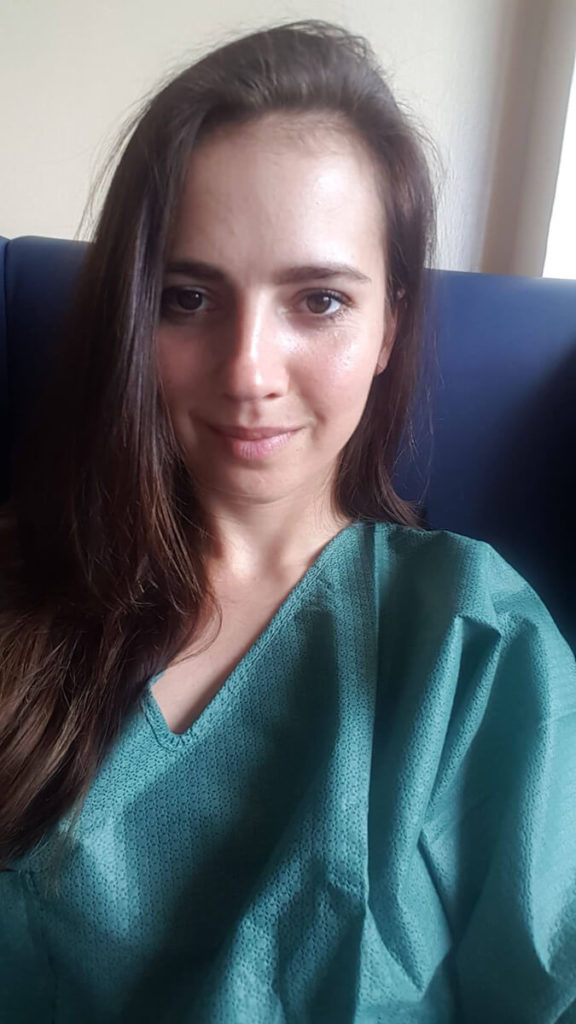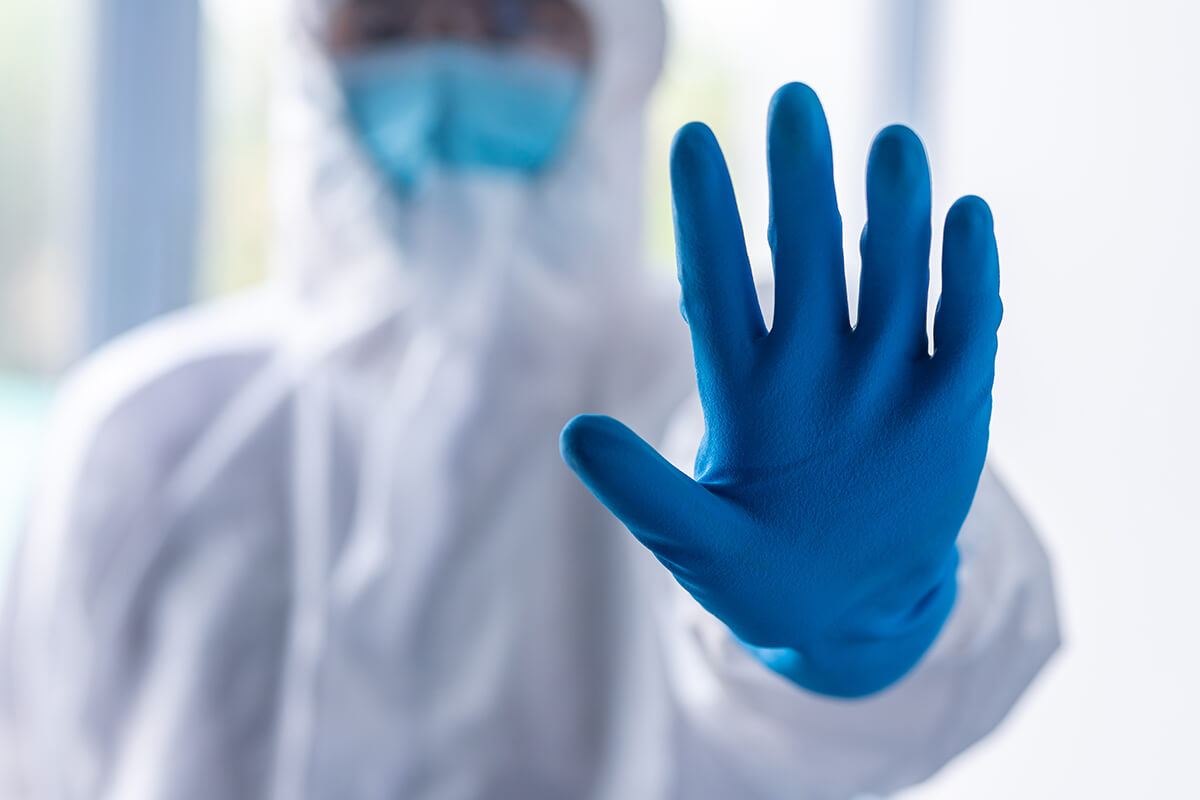Passionate physiotherapist. Full of positive energy. Confidently talks about how, despite fear, she enters the infectious ward every day. Dominika Glonek was one of the first to begin working with patients suffering from COVID-19.

Dominika Glonek – Physiotherapist who obtained her master’s degree at the Physical Education Academy in Poznań. She gained work experience by working in the hospital, i.a. on the cardiology ward. She now works in the ICU.
Joanna Tokarska: Were you forced to work like this?
Dominika Glonek: No one has forced me to do anything. I have been working in the intensive care unit since January this year. We were all ready. And then one day I received a phone call asking me whether I consent to work with COVID-19 patients. Although I instantly agreed, a few moments later I began wondering how this work was going to look like. After all, I had completely no experience with this disease.
You have worked in the ICU before. What has changed now?
The hospital I currently work at has been transformed into an infectious diseases hospital. It means, that our ICU only admits patients suffering for COVID-19 or suspected of being infected with coronavirus. As a result, completely new procedures regarding the safety of healthcare workers have been introduced.
How do you protect yourself from infection?
Since this situation is new to all of us, we have created teams consisting of four physiotherapists. Every team works shifts – two weeks of work and two weeks of break. We can choose whether we want to stay at home during work or use a flat provided to us by our hospital. Not all of us are able or want to go home every day. Our everyday work looks similar to what we have performed under normal circumstances. The biggest differences are safety procedures adopted during the epidemic. We have been trained in using protective equipment when we enter the ward and we have also been instructed what we should pay attention to when we leave the ward.
Is it complicated?
Maybe at the beginning. But there are many details that we need to pay attention to. But teamwork is very helpful. Thanks to the support that I receive from fellow physiotherapists, dressing up in protective equipment is a lot easier. I just need to be careful when taking off my protective uniform – I mustn’t touch the outer side and the whole uniform should fit in a small tray in which I stand. Information about all current safety procedures is printed and displayed in every room, which makes following the guidelines a lot easier, even in stressful situations. I remember how emotional I got the first time I actually entered the ward. Now I treat it like something ordinary but I also cannot let the routine distract me from paying attention to safety procedures.
How does a typical day in your ward look like?
Every morning all physiotherapists take part in briefing of the ICU team, which is when we receive information about patients currently treated on our ward and the procedures they require. The situation changes every day. We never know how many patients were admitted overnight or how many were transferred to different facilities. We also have to coordinate the time of our therapeutic sessions with work schedules of other healthcare professionals who take care of the patients, as there is a limited number of people who can be in the same room at the same time. Of course we have to be aware of the time required to put on protective clothes, take them off and take a shower – we carefully clean ourselves, along with the hair, every time we leave a room of an infected patient.
How do you know what to do with a patient?
I largely rely on doctors’ opinions, as not every patient suffering from COVID-19 requires physiotherapy. In some cases it is even contraindicated. And that is why effective cooperation between the medics is so important. We adjust current guidelines on rehabilitation to individual abilities of every patient.
And what are the patients like?
I work in the ICU, so all of our patients are in critical condition. They are often anesthetized, with limited contact or completely without contact. The priority in treating such patients is to support their respiratory and musculoskeletal systems. A kind word is a good form of therapy as well.
How did other staff members react to the presence of physiotherapists in the ICU?
At the beginning our presence aroused some general interest, since no one understood what can be the role of a physiotherapist on such a challenging ward. But they quickly realized that we smoothly adapt to the procedures performed on the ward and that our actions contribute to faster improvement of patients’ condition. Today no one is surprised by seeing a physiotherapist working with a COVID-19 patient anymore.
Are you afraid?
Of course I am – I fear the most for my family. And that fear makes abiding safety procedures so important. I do my best not to bring the virus home.
And I wish you that you never do, thank you for this interview.




